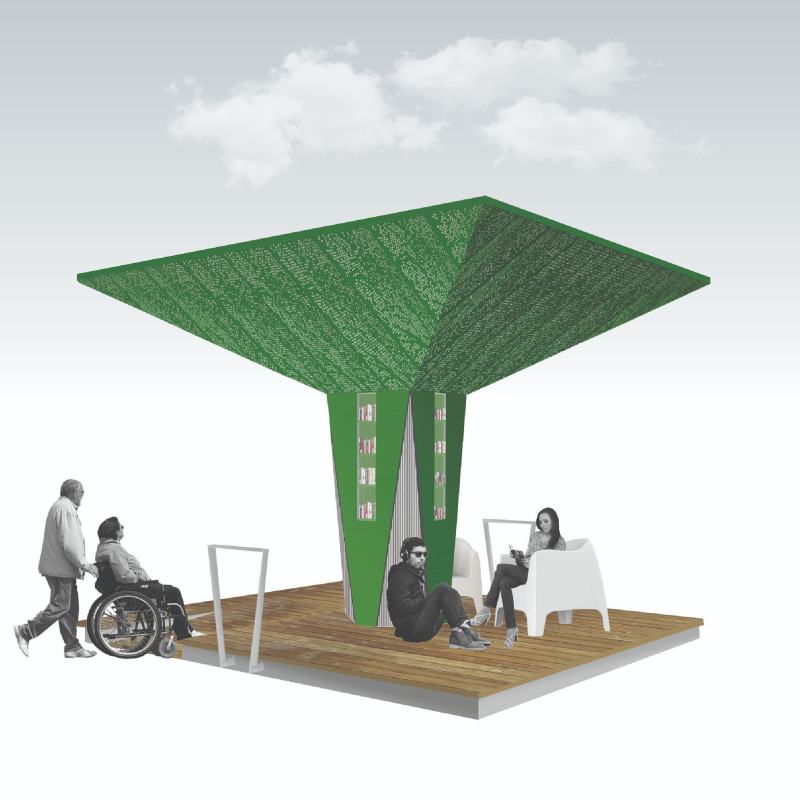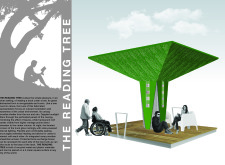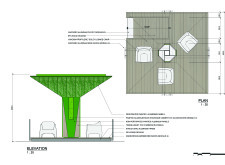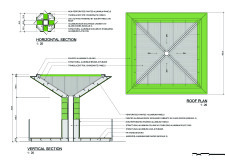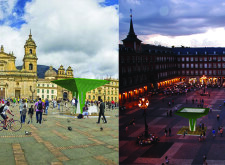5 key facts about this project
The Reading Tree is a design situated in an urban area, focused on providing a space for reading and community engagement. It merges elements of nature with a structured form, offering a refreshing environment for individuals looking to read or interact with others. The design features a green abstracted form that captures attention and serves as a gathering place in the city.
Design Concept Approach
The concept behind The Reading Tree emphasizes the connection between urban life and nature. The trunk of the structure draws attention outward, helping users feel connected to their surroundings. This orientation encourages both quiet reading and active engagement with the urban environment, making the space a functional part of civic life.
Canopy and Weather Protection
The canopy is designed to address various weather conditions, providing shelter against sun and rain. Perforated panels allow sunlight to pass through, creating interesting patterns of light in the reading area. This thoughtful feature not only enhances the visual quality of the space but also serves a practical purpose by directing rainwater toward a central column.
User Engagement and Accessibility
Seating in The Reading Tree is comfortable and flexible, allowing users to spend time reading or socializing. There is an integrated ramp to ensure wheelchair access, promoting inclusivity. Protected book exchange boxes are located on the sides of the trunk, encouraging people to share and access books, thus fostering a sense of community.
Sustainable Material Choices
Recycled materials, such as metal and plastic, are used in the construction of The Reading Tree. This choice highlights a commitment to sustainability while ensuring the structure is durable and functional.
At night, solar-powered lighting illuminates the structure, giving it a warm glow and enhancing its visibility in the urban setting. The glow invites users to engage with the space after dark, creating a welcoming atmosphere for reading and gathering.


